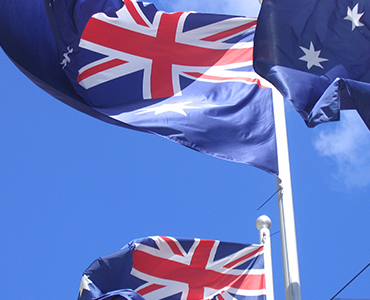Australia has climbed two places to be back inside the top 20 most competitive nations, in a global ranking released today.
 In releasing the Australian results of the IMD World Competitiveness Yearbook, which ranks and assesses 63 countries, CEDA CEO Melinda Cilento said Australia had regained two places coming in at 19 and moving ahead of the UK, New Zealand and Iceland.
In releasing the Australian results of the IMD World Competitiveness Yearbook, which ranks and assesses 63 countries, CEDA CEO Melinda Cilento said Australia had regained two places coming in at 19 and moving ahead of the UK, New Zealand and Iceland.
“Australia improved across the four core areas assessed with economic performance moving from 25 to 19, our best result in five years for this category; government efficiency moving from 18 to 14; business efficiency moving from 27 to 24; and infrastructure moving from 18 to 16,” she said.
“Despite the positive high-level result, the report shows Australia faces a number of challenges to be more internationally competitive. Australia has dropped six places to 30 in its ranking for productivity and received a number of low rankings for its personal and corporate tax rates.
“Productivity in Australia remains well below the historical averages that have driven the improvements in standards of living to which Australians have become accustomed. This requires a reinvigorated focus across a number of areas including innovation.
“The corporate tax rate on profit was the weakest ranking within the government efficiency category, coming in at 50 again, highlighting that to remain internationally competitive, this is an area that needs to be reviewed.”
Ms Cilento said the report results raised several areas of concern relating to Australia’s investment in R&D and retention of talent.
“Among the 15 criteria with the biggest decline in 2018, three relate to innovation: business expenditure on R&D, total expenditure on R&D and brain drain,” she said.
“Relocation threats of R&D facilities is also one of the weakest criteria under the economic performance ranking coming in at 53.
“Australia must continue to foster a culture of innovation among business and government if we are to realise the immense opportunities from a range of rapidly emerging technologies and data availability.
“R&D spend both by government and business is vital to ensure we remain at the forefront of innovation.
“Overall, the areas in which Australia is assessed to perform poorly, such as tax policy, including the corporate tax rate, energy infrastructure, communications technology and R&D related criteria are all areas where we have struggled to gain traction on meaningful reform or find long term solutions.
“These issues need to stay on the national agenda.”
Ms Cilento said the results from the executive opinion survey, found that the top key attractiveness indicators for our economy were: an effective legal environment; high educational level; and a skilled workforce.
The three indicators to rank the lowest for Australia were a competitive tax regime, competency of government and cost competitiveness. These are all unchanged from 2017.
The rankings are part of the Switzerland based IMD’s 2018 World Competitiveness Yearbook, which compares and ranks 63 countries based on more than 340 business competitiveness criteria. Two thirds of the criteria are based on statistical indicators and one third is based on a survey of more than 6000 international executives conducted in March/April this year. CEDA is the Australian partner for the yearbook.
Overall the United States took the top ranking, overtaking Hong Kong, which fell to second place. The top five was rounded out again by Singapore, Netherlands and Switzerland.
2018 ranking results:
View the overall ranking chart and summary of the Australian results,
available here.